Blue-throated macaws are large colorful parrots native to Bolivia. They are one of the rarest in the world. Their upperparts are turquoise-blue, slightly duller on the crown, and brighter on the rump. Underparts are largely bright yellow, but the vent is pale blue. These birds have bare facial patches obscured by blue feather-lines merging into blue lower cheek and throat, separated from the crown by narrow yellow stripe and bare pink skin around the base of the large, black bill. Despite being plentiful in captivity, these beautiful and intelligent birds are critically endangered in the wild and are protected by trading prohibitions.
Blue-throated macaws are the rarest species of macaws in the wild. They are rather popular in the pet trade. They are kept as pets widely because of the vivid coloring and friendly characteristics.
Blue Throat Macaw are beautiful birds. They have a bright blue face, neck, and back. Their chest is a stunning golden-yellow color. Blue Throats are slightly smaller than Blue and Gold Macaws. Blue Throats are known to have strong personalities, a home that offers time, patience, and commitment would do very well with a Blue Throat.
These beautiful birds are highly sought after as pets. They are inquisitive, intelligent, and cheerful. The finer nuances of how to deal with a pet blue-throated macaw are discussed below.
Housing
These large macaws need to be provided as large a cage as one can afford. Their 3 feet long wingspan necessitates a spacious enclosure with a lock or an escape-proof latch. They need to have enough room to move about freely. Minimum dimensions are 5’X5’X8’, but the larger, the better. The cage should be built with strong wiring. Provide perches, toys, chewable and regular, chewable branches for the bird’s enrichment. Let the bird out of its cage for at least 2 hours a day.
Temperament & Behavior
They are a very social bird in the wild and hold on to this trait even when kept as a pet. They enjoy being in the company of people as well as other birds and are rarely seen getting aggressive. They are also very self-sufficient and can keep themselves entertained for long hours. They are suitable as a family bird as they can gel well with all members of the family. They do, however, retain some macaw instincts and can be nippy on seldom occasions. Socialize your bird with many people from a young age so that it stays friendly.
Feeding
Blue-throated macaws should be given a pellet or seed mix on a daily basis. You can also feed them any nutritious food you eat. Occasionally giving them chicken can fulfill their need for protein. Do not give them chocolate and avocado as those can prove fatal for the bird.
Care
They come from a humid habitat in the wild, so ensure that they are bathed every day either in a birdbath or through a mist spray. You can also take them with you when you take a shower. The water should be at room temperature.
Clip the nails and beak every two months.
Clean the food and water dishes in the cage with regularity.
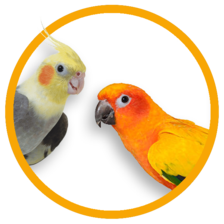
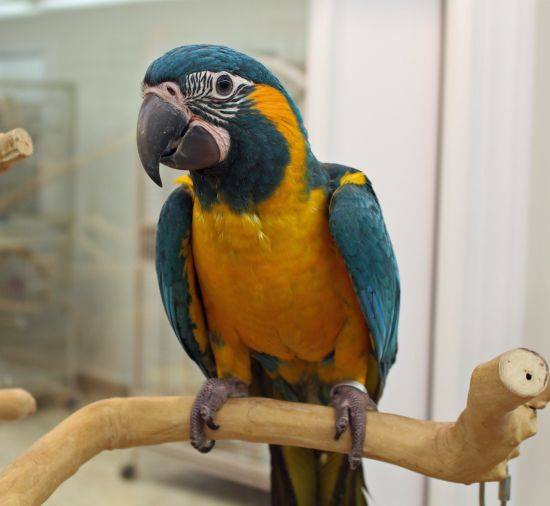
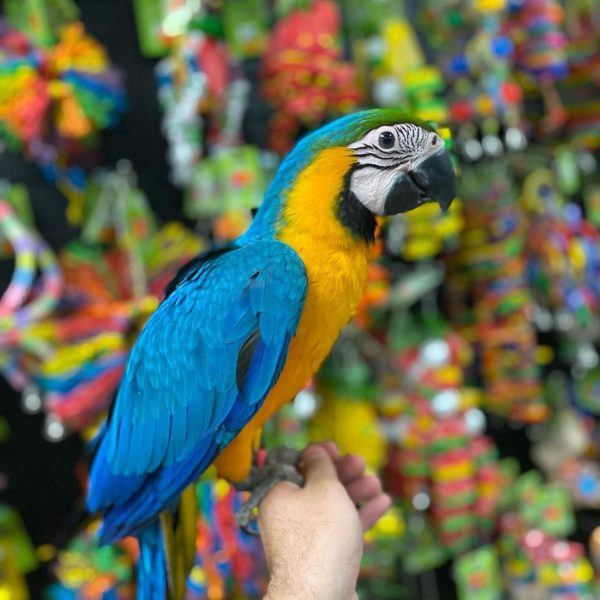
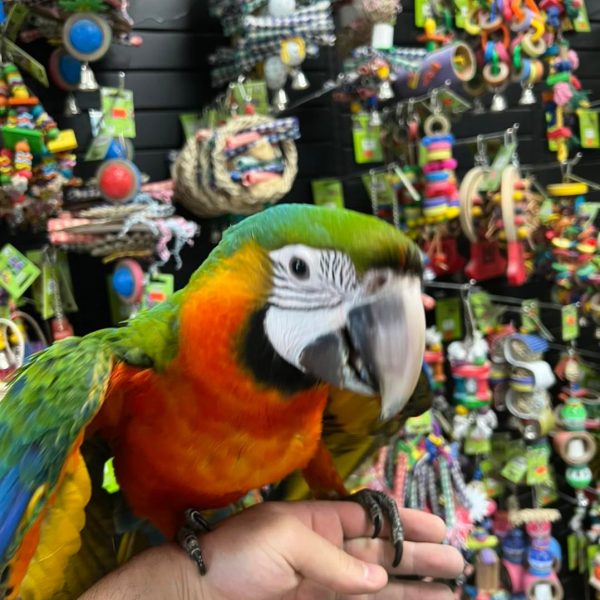
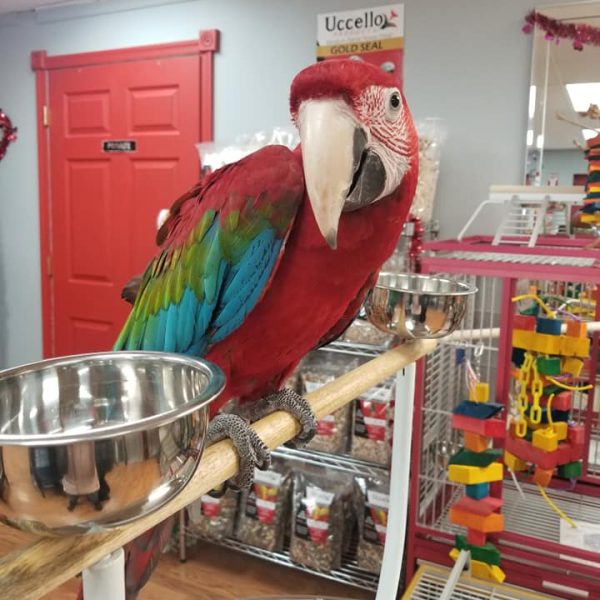
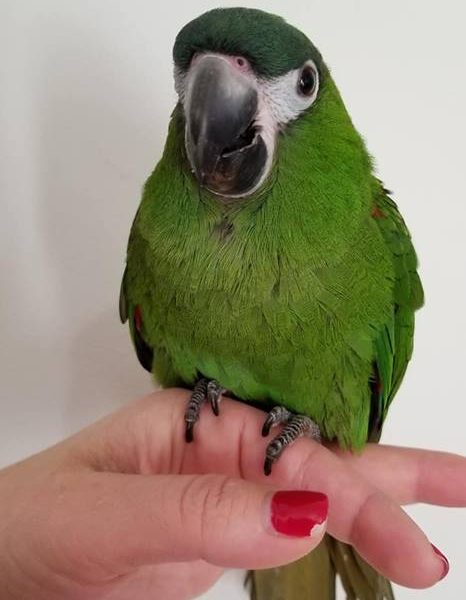
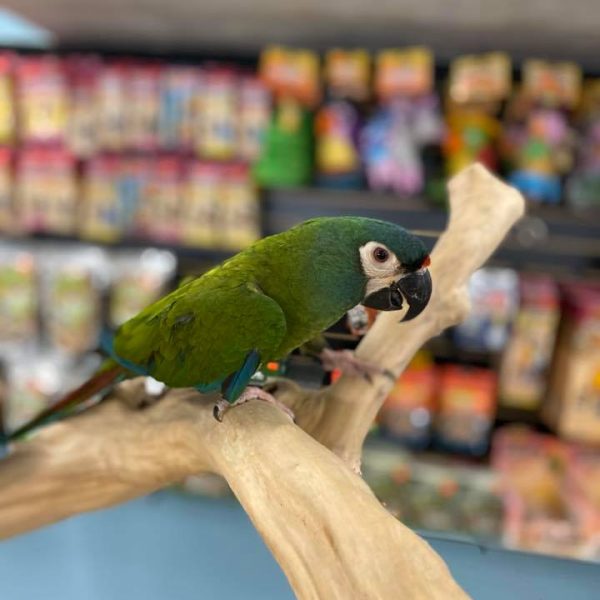
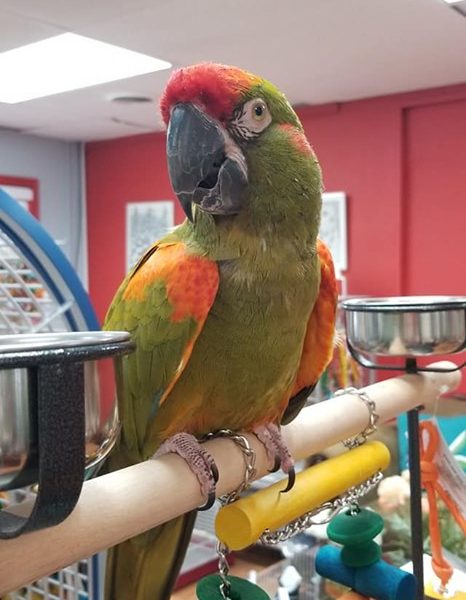
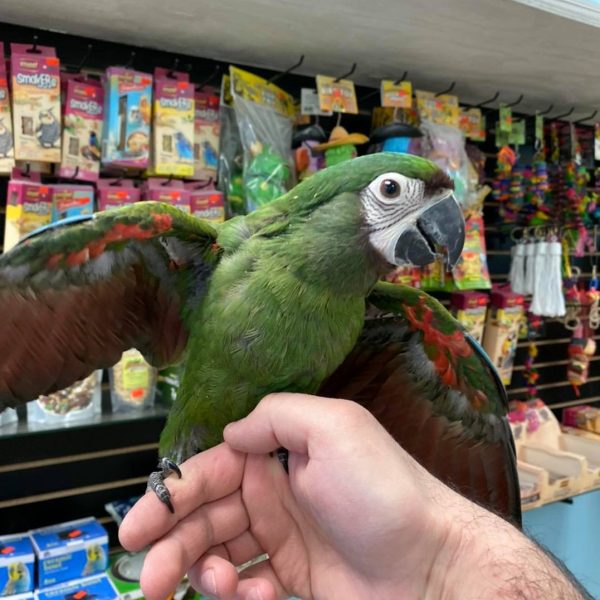
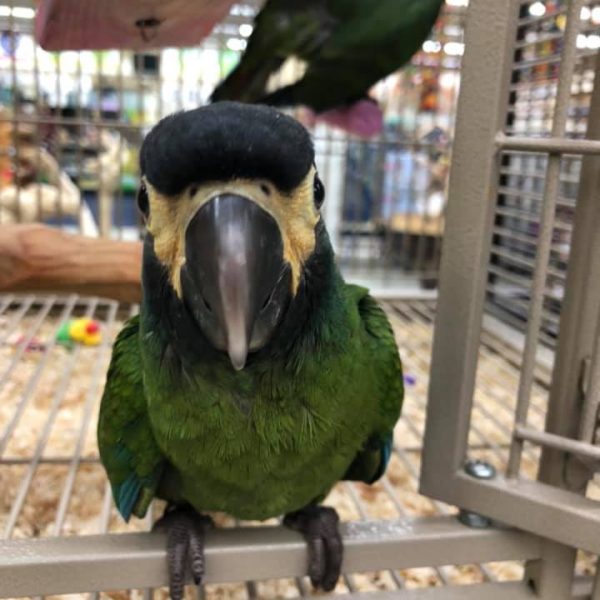
Reviews
There are no reviews yet.